On the occasion of the 100th anniversary of the Vietnamese Revolutionary Press (June 21, 1925 - June 21, 2025), Mr. Vinod Moonesinghe, Director of the Marxist Research Institute (Sri Lanka), made profound assessments of the role and lasting value of the Vietnamese revolutionary press in the present and future context.
In an interview with a VNA reporter in South Asia, Mr. Vinod Moonesinghe stated that the Fourth Industrial Revolution based on digital technology is accelerating strongly thanks to the remarkable development of artificial intelligence (AI).
Just as word processing technology transformed the printed word in the 1980s and the Internet revolutionized mass media in the early 2000s, AI is profoundly changing journalism.
In this process, the press and journalists play a key role: bridging the gap between modern technological advances and the public, while ensuring that information is conveyed accurately, ethically and insightfully.
According to Mr. Moonesinghe, these new technologies open up many opportunities for journalists, improving efficiency, as AI-powered tools help automate repetitive tasks such as transcript writing, fact-checking and data analysis, thereby helping journalists focus on in-depth investigations.
AI also supports big data analysis - something that is difficult for humans to do manually - to detect trends and provide new perspectives.
News organizations can personalize content and enhance reader engagement by tailoring news to individual preferences.
Automatic translation and speech-to-text technology also contribute to expanding access to information.
However, with the opportunities come many challenges, most notably ethical issues such as misinformation, bias and responsibility for AI-generated content. AI tools sometimes provide wrong information.
Another concern is the trend toward entertainment, which overshadows the true function of the media. Transparency is also questioned, especially when AI systems obscure sources and editorial decisions, which can undermine public trust.
Furthermore, as more jobs are automated, journalists’ job opportunities may decline, requiring extensive retraining to adapt. Uneven access to AI technology and retraining opportunities across regions could also create inequality.
The future of journalism may lie in the combination of AI’s efficiency and human creativity. Journalists should therefore approach AI as a powerful tool while maintaining ethical standards and human oversight.
However, in reality, maintaining this balance is not easy, especially in a high-pressure environment.
Regarding digital transformation in journalism, Mr. Moonesinghe said that this is no longer simply a trend, but has become a reality that covers the entire industry.
Newsrooms today have become technology hubs, combining AI with dynamic mobile storytelling, redefining how stories are told, shared, and consumed.
Journalists often have to update information instantly from the field using smart devices.
Virtual reality (VR) and augmented reality (AR) technologies allow the public to experience information in an immersive and interactive way. Data analysis and reader feedback are gradually shifting the focus of journalism from "information dissemination" to "dialogue" with the public.
These changes do not replace journalism, but rather help it reach further, increase its effectiveness, and connect with its readers. While the tools of journalism have changed, the core mission of journalism – to report the truth and serve the public – remains the same.
In today’s environment, journalists need to be tech-savvy. They need to understand digital tools like data visualization, AI-powered research, and multimedia editing skills.
Collaboration with technologists, designers, and data scientists is essential, and ethics and trustworthiness are becoming key in an age of fake news and content manipulation technology. Maintaining integrity is a core value of modern journalism.
The Director of the Institute of Marxist Studies stated that since the early days of the resistance war against colonialism, the Vietnamese revolutionary press was not simply a historian. Accompanying the Vietnamese people, the press became a powerful driving force in the cause of gaining national independence, building socialism and moving towards prosperity. The press played an essential role in defending the Fatherland and shaping the country's future.
Since President Ho Chi Minh founded Thanh Nien Newspaper in 1925, the revolutionary press has become the voice of the revolutionary masses. As a sharp ideological weapon, the press has spread revolutionary ideals, calling on the entire people to unite and rise up.
During the anti-colonial wars, journalists risked their lives to awaken the people’s patriotism and will to resist foreign invasion. During the post-war reconstruction period, the period of renovation and integration, the press continued to make great contributions to national development, the fight against corruption and the promotion of social dialogue on modernization.
In today's digital age, with the proliferation of fake news and counterfeiting technology, journalism remains committed to truthful reporting and upholding national values.
Vietnam News Agency (VNA) was established in 1945, is the official voice of the revolution, broadcasting President Ho Chi Minh's Declaration of Independence in three languages: Vietnamese, French and English.
VNA reporters have worked directly on the front lines, many of whom have sacrificed their lives for their duties.
Mr. Moonesinghe said that since its establishment, VNA has affirmed its global stature, maintaining accuracy and objectivity in reporting domestic and international news. At the same time, the agency has constantly innovated and applied modern technology such as multilingual platforms, AI and vivid storytelling. VNA is a model for modern journalism: responsible, honest and effectively adapting to the technological age.
In addition, Mr. Moonesinghe pointed out that President Ho Chi Minh's journalism ideology is deeply expressed through the saying: "Nothing is more precious than independence and freedom" and the emphasis that journalists must be honest, responsible and ethical.
People viewed the press as a revolutionary tool to arouse patriotism and promote social progress. That ideology still guides editorial standards and professional ethics in Vietnamese newsrooms today.
That ideology continues to guide Vietnamese media with core values such as: serving the people, honesty, national unity. Principles such as: truth and integrity, clear and easy-to-understand language, political awareness and professional ethics, close approach to the people, are still the foundation of journalism ethics in Vietnam, especially in the process of digital transformation and global integration.
In other words, President Ho Chi Minh's journalism ideology is still the moral compass for Vietnamese journalism in the new era./.
(Vietnam+)
Source: https://www.vietnamplus.vn/bao-chi-thuc-tinh-long-yeu-nuoc-va-y-chi-doc-lap-dan-toc-post1045384.vnp




![[Photo] Politburo works with the Standing Committee of Cao Bang Provincial Party Committee and Hue City Party Committee](https://vphoto.vietnam.vn/thumb/1200x675/vietnam/resource/IMAGE/2025/8/28/fee8a847b1ff45188749eb0299c512b2)
![[Photo] General Secretary To Lam presents the 45-year Party membership badge to comrade Phan Dinh Trac](https://vphoto.vietnam.vn/thumb/1200x675/vietnam/resource/IMAGE/2025/8/28/e2f08c400e504e38ac694bc6142ac331)
![[Photo] Red flag with yellow star flutters in France on National Day September 2](https://vphoto.vietnam.vn/thumb/1200x675/vietnam/resource/IMAGE/2025/8/28/f6fc12215220488bb859230b86b9cc12)
![[Photo] General Secretary To Lam attends the opening ceremony of the National Achievements Exhibition](https://vphoto.vietnam.vn/thumb/1200x675/vietnam/resource/IMAGE/2025/8/28/d371751d37634474bb3d91c6f701be7f)
![[Photo] Prime Minister Pham Minh Chinh meets with Speaker of the New Zealand Parliament Gerry Brownlee](https://vphoto.vietnam.vn/thumb/1200x675/vietnam/resource/IMAGE/2025/8/28/cec2630220ec49efbb04030e664995db)
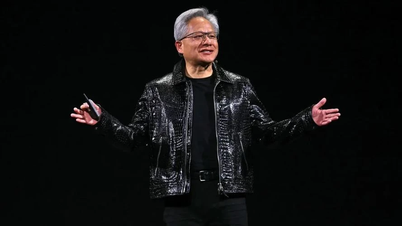
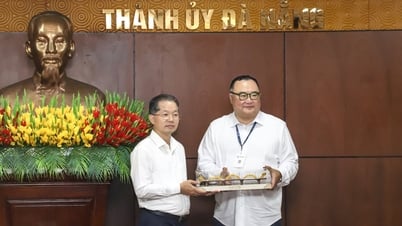









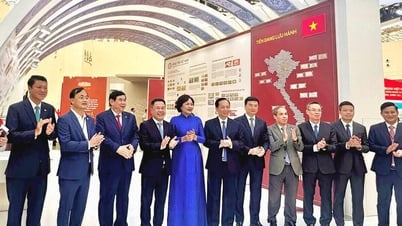


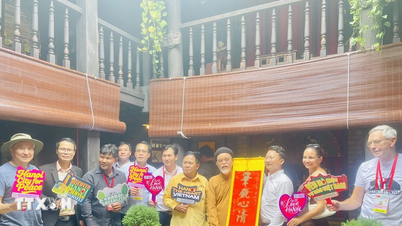







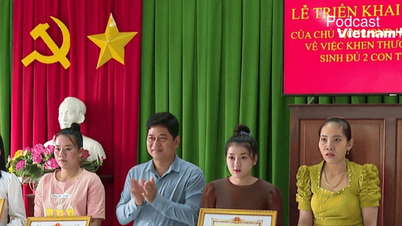
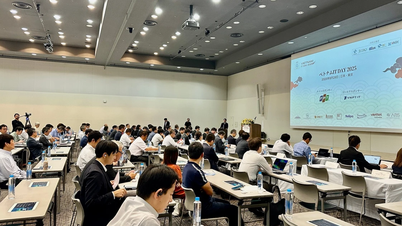
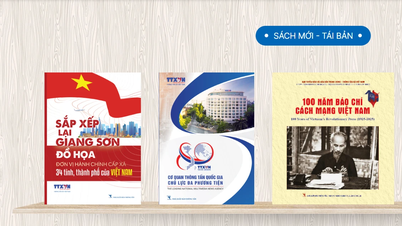

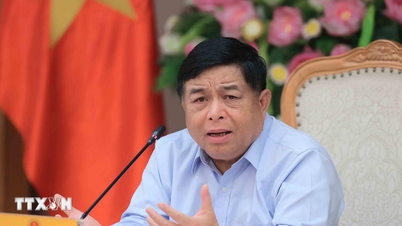










































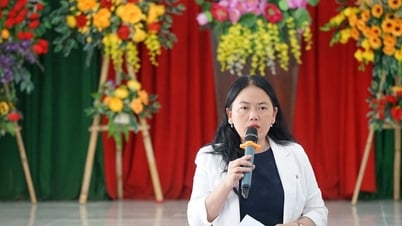





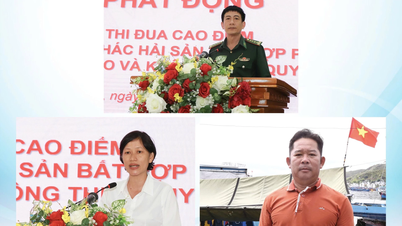
















Comment (0)